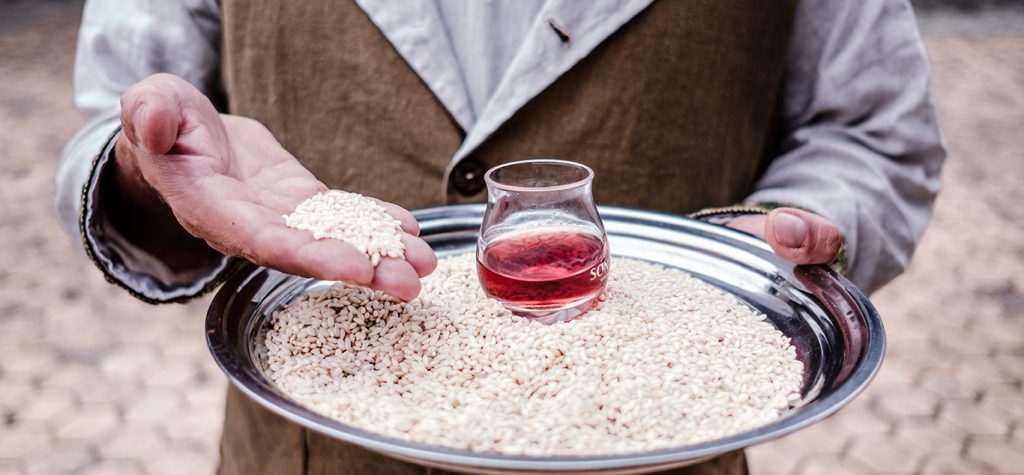The secret behind Vietnam’s fragrant sticky rice
We scoured the country to find the ideal rice for our original ruou.
As the primary ingredient, we had to make sure we were selecting the finest rice possible, picked at the correct time of the year, sourced from our most trustworthy farmers.
During the initial ingredient sourcing state, it felt like we tried rice from every paddy in the country, but we eventually settled on the fragrant sticky rice from the Red River Delta.
With its lush green fields and fragrant grains, sandwiched between mountains hills, we knew we’d found the right spot. And by continuously working with rice farmers of the Red River Delta, we’re able to distill a little piece of Vietnam’s history into every bottle.
About 3,000 years ago the Red River Delta became the first place in Vietnam to grow rice, and growing methods are still being kept alive.
This was the original habitation of the ancient Viet people who tamed wild rice for cultivation. Making the most of their hot and humid surroundings, along with the abundance of ponds and rivers, new rice crops quickly became their dietary staple.

The roots of this rice farming have given a slow birth to the Vietnam we recognise today, forming the belief in gods of rain, wind, thunder and lightning. Artistic and cultural endeavours sprung out of this too, with the Red River Delta civilisation going to produce cheo classical opera and water puppetry.
These days, the Red River Delta is the second largest area of rice growth in Vietnam, covering around 1.5 million hectares and producing 20% of the country’s total yield. It still has its own share of problems though: increasing urbanisation is catching up to these farms, with the ever-growing city limits pushing its boundaries.
While our stake in Vietnam’s history may be pretty minimal compared to rice farming, or water puppets, we’re happy to be able to able to distill our ruou with so much history. Next time you sip on a glass of our base ruou, Nep Phu Loc, or any of our 12 flavours for that matter, take a minute to think about it.
How is rice made?
There’s no stopping for a rice farmer. When one season ends, it’s just about the right time to start the next one. Here’s an idea of the rice-growing techniques, developed millennia ago and still used today.
1. Select the grain: The healthiest 1% of the grain is saved for the next round of planting.
2. Cultivate your crop calendar: Figuring out the best time to prepare the land, establish and maintain your crop, harvest it, and store it, is integral for a good season.
3. Plow the Field: When the seedlings are strong enough, it’s time to plow the field. While machines may have taken over on some farms, water buffalo are still a common sight in the Red River Delta.
4. Transplant the Seedlings: Planting out these partly grown seedlings will give them a head start over the emerging weeds.
5. Water and Weed: Flooding rice paddies was one of the first tools developed by farmers to control weeds in rice. Sticky rice, like the kind we use in Son Tinh, requires less water than regular rice and can be grown on hillsides where the crop may get enough water from natural rainfall, in addition to lowland paddies that are manually irrigated.
6. Harvesting: First off, a farmer will drain the paddy, then cut the plants and transport the plants somewhere else to dry out for a few days.
7. Drying and milling: Once dried to around 14% water content, it’s safe to store and mill.
8. Packing and Storing: One of the most important stages, correct storage prevents anyone from going hungry from bad weather, moisture, and any animals that want an easy meal.
Stories
